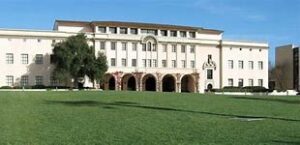Yale University, one of the oldest and most prestigious institutions in the United States, is synonymous with academic excellence and intellectual rigor. Established in 1701 in New Haven, Connecticut, Yale has long been recognized as a center of elite education. Known for its storied history, distinguished faculty, world-class research, and exceptional student body, Yale University remains a beacon of higher learning, attracting the brightest minds from around the globe.
This article explores the depth and breadth of Yale University’s offerings, examining its history, academic structure, notable programs, research contributions, campus life, and global impact. Elite Education: Yale University – Academic Excellence, Innovation, and Global Leadership an institution that has produced many of the world’s most influential leaders, scholars, and professionals, Yale epitomizes the pursuit of elite education.
A Storied History: Yale’s Foundation and Growth
Yale University was founded in 1701 as the Collegiate School by a group of ministers who sought to train clergy and political leaders. Initially located in Saybrook, Connecticut, it moved to New Haven in 1718, where it has remained ever since. The university was renamed Yale College in honor of Elihu Yale, a wealthy British merchant and benefactor.
Throughout the 18th and 19th centuries, Yale established itself as one of the leading academic institutions in the United States, attracting the best and brightest minds. Its first president, Ezra Stiles, was instrumental in shaping the early curriculum, emphasizing the liberal arts and preparing students for leadership roles in government and society. In 1861, Yale became Yale University, a reflection of its growing academic scope and the expansion of its graduate and professional schools.
Today, Yale is known not only for its history but also for its continued commitment to shaping the future through its cutting-edge research and dedication to producing leaders in various fields, from law and medicine to business and the arts.
Academic Excellence: Rigorous Programs and Interdisciplinary Learning
Yale University is known for its rigorous academic programs and comprehensive curriculum. The university offers undergraduate degrees through its Yale College and graduate degrees through its various graduate schools, including the Yale Graduate School of Arts and Sciences, the Yale Law School, the Yale School of Medicine, and the Yale School of Management.
Yale College: Undergraduate Education
Yale College, the undergraduate division of Yale University, offers a unique and personalized educational experience. With a strong emphasis on interdisciplinary learning, the undergraduate program is designed to encourage intellectual curiosity and critical thinking. Students are required to take courses across a broad spectrum of subjects, including the humanities, social sciences, natural sciences, and mathematics.
One of the defining aspects of Yale College is its Yale College Curriculum, which includes both general education requirements and the freedom for students to choose from more than 80 majors. The curriculum encourages students to take courses that challenge them intellectually and develop their skills in a range of disciplines. Yale College also emphasizes the importance of writing and quantitative reasoning, ensuring that students leave with well-rounded academic skills.
Yale’s commitment to interdisciplinary education allows students to combine diverse areas of study, tailoring their education to their unique interests and career aspirations. Elite Education: Yale University – Academic Excellence, Innovation, and Global Leadership instance, students can pursue joint degrees in multiple fields, such as political science and economics or biology and environmental science, reflecting the university’s focus on integrating various disciplines.
Graduate and Professional Programs
Yale University’s graduate schools are among the best in the world, consistently ranked at the top in their respective fields. These programs provide advanced education and training for students seeking expertise in specialized areas of study. Yale’s Law School is renowned for its prestigious programs and influential faculty. Graduates of Yale Law School have gone on to become influential judges, legal scholars, and policymakers, including U.S. Supreme Court justices and prominent politicians.
The Yale School of Medicine is another key component of Yale’s academic excellence, with a focus on cutting-edge medical research and compassionate patient care. The school has made significant advancements in areas such as cancer research, genetics, and neurology.
The Yale School of Management (SOM) is known for producing innovative business leaders and entrepreneurs. SOM’s MBA program emphasizes leadership development, global strategy, and entrepreneurship. Graduates of Yale’s MBA program have gone on to become leaders in various industries, including finance, technology, and healthcare.
In addition to these programs, Yale offers graduate degrees in fields such as engineering, architecture, public health, divinity, and art, providing students with the opportunity to specialize and make groundbreaking contributions in their chosen fields.
Research Excellence: Advancing Knowledge Across Disciplines
Yale University is renowned for its commitment to research and its contributions to the advancement of knowledge. The university’s faculty and students are engaged in groundbreaking research in a wide range of disciplines, from the humanities to the natural sciences.
Interdisciplinary Research Centers
Yale fosters interdisciplinary research through its numerous research centers and institutes. For instance, the Yale Institute for Biospheric Studies is dedicated to studying the complex interactions between the environment, ecosystems, and human society. The Yale Cancer Center is one of the leading cancer research facilities in the world, conducting innovative research in areas such as immunotherapy and targeted cancer treatments.
The Yale MacMillan Center for International and Area Studies is another example of Yale’s interdisciplinary approach to research, bringing together scholars from a variety of disciplines to explore global issues such as international relations, development, and human rights.
The Yale Center for Emotional Intelligence focuses on the intersection of psychology, education, and business, aiming to improve emotional and social skills through evidence-based research. This interdisciplinary approach is characteristic of Yale’s commitment to solving real-world problems through collaborative research.
Notable Research Contributions
Yale’s faculty and researchers have made numerous groundbreaking contributions to their fields. One of the most notable achievements in recent years was the discovery of the gene responsible for Huntington’s disease, a neurodegenerative disorder. Yale researchers have also been at the forefront of developing treatments for diseases like cancer, Alzheimer’s, and HIV/AIDS.
In the humanities, Yale’s scholars have made lasting contributions to the fields of philosophy, history, literature, and political science. Yale’s Yale Review of Books and Yale Journal on Regulation are some of the many platforms where research is shared with a global audience, shaping discussions on topics such as governance, the environment, and social justice.
Campus Life: A Supportive and Inclusive Community
Yale’s commitment to providing an elite education extends beyond the classroom. The university fosters a supportive, vibrant, and inclusive campus environment that encourages personal and academic growth.
Residential Colleges
One of Yale’s most unique features is its Residential College System, which creates small communities within the larger university. Each residential college is led by a faculty master and provides students with opportunities for mentorship, community engagement, and intellectual exploration. These colleges also host cultural events, social activities, and academic seminars, allowing students to engage in discussions outside of the classroom.
Cultural and Extracurricular Activities
Yale offers an extensive array of extracurricular activities that contribute to the university’s dynamic campus life. Students can participate in performing arts, sports, volunteer work, and academic clubs, among others. The Yale Symphony Orchestra, the Whiffenpoofs (the world’s oldest a cappella group), and the Yale Dramatic Association are just a few of the many student organizations that contribute to the university’s vibrant cultural scene.
Yale’s campus is also home to several museums and libraries, including the Yale University Art Gallery, the Yale Center for British Art, and the Beinecke Rare Book and Manuscript Library. These institutions provide students with access to world-class collections and are integral to the intellectual and cultural life of the university.
Diversity and Inclusion
Yale is committed to fostering a diverse and inclusive environment where students from all backgrounds feel valued and supported. The university actively promotes diversity through its student organizations, support networks, and initiatives designed to ensure that underrepresented groups have access to the resources they need to thrive academically and socially.
Global Impact: Influential Alumni and Outreach
Yale University’s global impact is a reflection of its commitment to educating future leaders who will shape the world. Yale’s alumni include presidents, Nobel laureates, business leaders, and cultural icons. Yale graduates have held key positions in government, academia, business, law, and the arts.
Notable Alumni
Some of Yale’s most notable alumni include:
- George H.W. Bush and George W. Bush, U.S. presidents
- Hillary Clinton, former U.S. Secretary of State
- Meryl Streep, award-winning actress
- Paul Krugman, Nobel laureate in economics
- Edie Windsor, LGBTQ+ rights activist
These individuals, along with many others, demonstrate Yale’s long-standing legacy of producing leaders who influence global affairs.
Global Outreach and Collaboration
Yale’s global presence is also reflected in its research and partnerships. The university collaborates with institutions worldwide, from the Yale School of Public Health’s work on global health to Yale’s efforts to combat climate change through its Yale Environmental Protection Program. Yale’s students and faculty are often at the forefront of addressing the world’s most pressing issues.
Conclusion
Yale University stands as a symbol of elite education, blending a rich history with a commitment to intellectual excellence and innovation. From its rigorous academic programs and groundbreaking research to its supportive and inclusive campus culture, Yale continues to attract the brightest minds and produce leaders who have a lasting impact on society.
Through its distinctive approach to education, Yale fosters an environment that encourages students to challenge themselves intellectually, engage in meaningful research, and contribute to society in ways that make a difference. Elite Education: Yale University – Academic Excellence, Innovation, and Global Leadership one of the most respected institutions in the world, Yale remains a global leader in higher education and continues to shape the future by providing an elite education to those who will shape the world.















